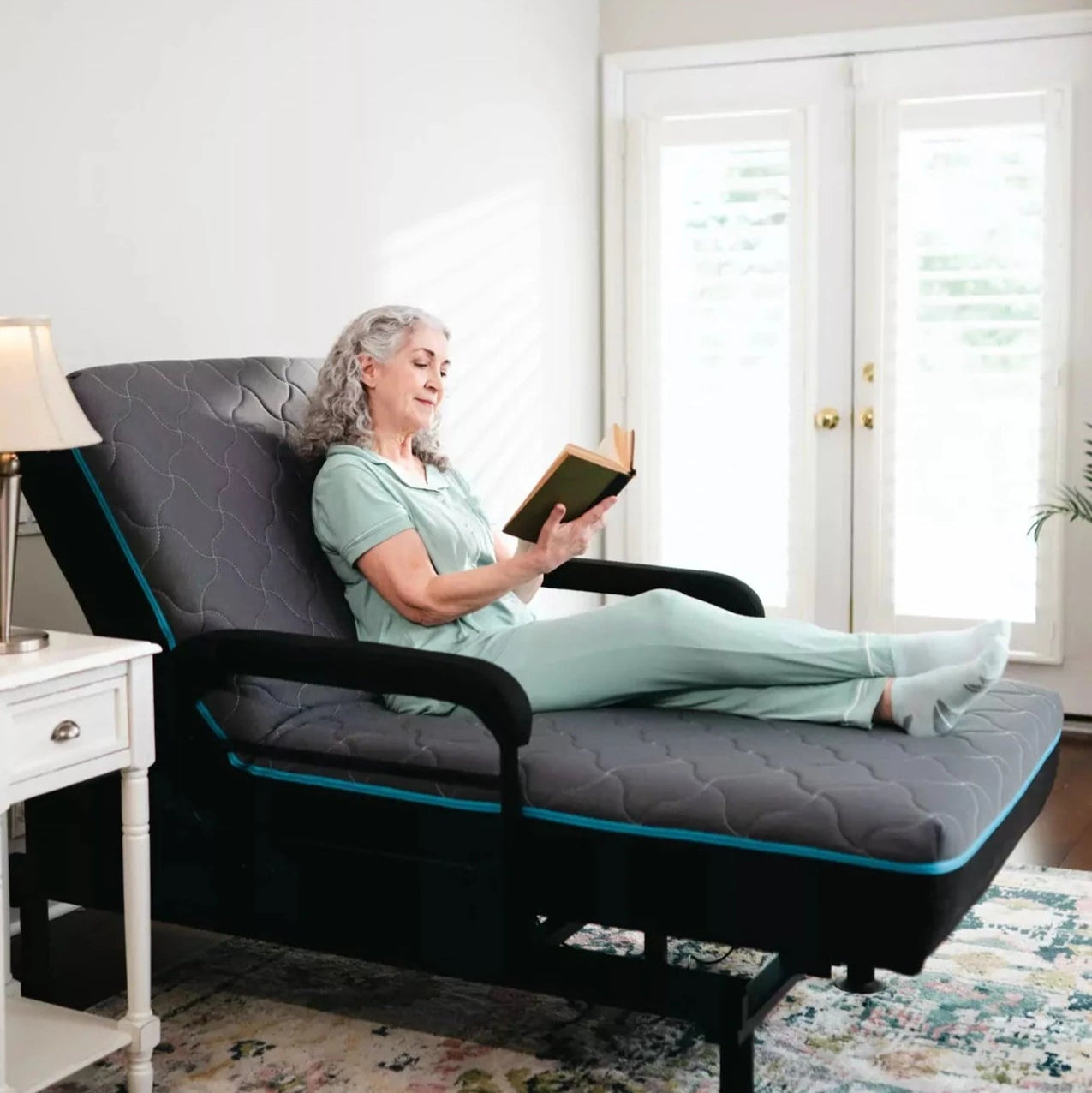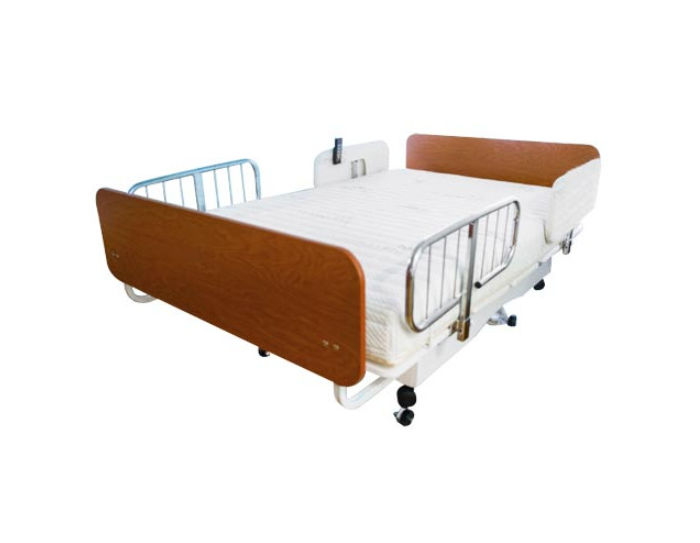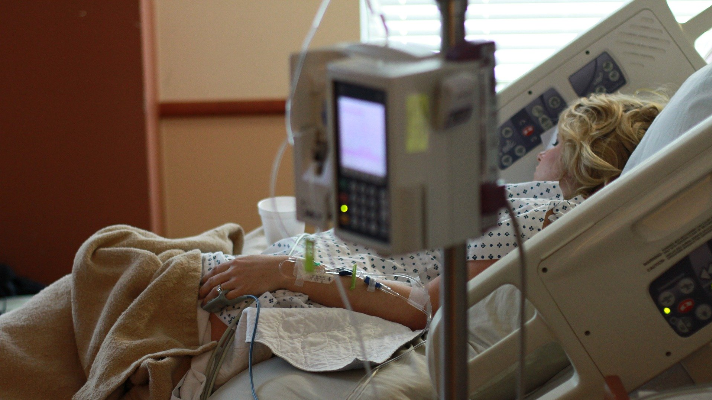See This Report on Hospital Beds For Home Use
See This Report on Hospital Beds For Home Use
Blog Article
Hospital Beds For Home Use for Dummies
Table of ContentsEverything about Hospital Beds For Home UseUnknown Facts About Hospital Beds For Home UseHospital Beds For Home Use Can Be Fun For AnyoneSome Of Hospital Beds For Home UseThe Definitive Guide to Hospital Beds For Home UseHospital Beds For Home Use Fundamentals Explained7 Simple Techniques For Hospital Beds For Home Use
There are three major kinds of healthcare facility beds: guidebook, semi-electric, and fully-electric. These beds make use of hand cranks to adjust the bed's elevation and elevate and lower the head and the foot.
Semi-electric beds have an electrical motor to raise and reduce the head and foot parts of the bed (hospital beds for home use). Full-electric beds have an electrical motor that can increase the head and foot areas of the bed as well as the whole height and positioning of the bed.
See This Report on Hospital Beds For Home Use
There are several kinds of healthcare facility beds, each created to meet particular patient needs. Right here are some common types: This is the most usual kind of healthcare facility bed, created for general medical usage.
Reduced to the ground than a common bed. This kind of bed is created for bigger clients, with a bigger frame and higher weight ability than a conventional bed.
This kind of bed is developed for seriously unwell clients that call for open monitoring and specialized clinical devices such as ventilators and mixture pumps. This kind of bed is developed for usage during labor and shipment, with adjustable settings and features to sustain the mommy and baby during the birth process.
Hospital Beds For Home Use Fundamentals Explained
Several function and the accessories execute increasing traction to different components of the vertebra and the extremities without moving the body. These are just a few instances of the kinds of health center beds available. The specific kind of bed made use of will certainly depend on the individual's problem, medical requirements, and various other aspects.
Here is things you need to understand. A one-function medical facility bed is a medical bed that permits a client to move just the head or foot section up or down. A 2 function hospital bed typically describes a kind of clinical bed that has two adjustable functions to aid clients in medical facilities or care facilities.

What Does Hospital Beds For Home Use Mean?
A 7-function ICU bed is a kind of medical bed that supplies numerous flexible features to sustain seriously sick patients in an intensive care system (ICU) (hospital beds for home use). The 7 functions typically include: Back-rest adjustment: The backrest can be adapted to different angles to aid the person sit up or rest comfortably
Elevation modification: The bed can be raised or reduced to make it simpler for clients to get in and out of bed, and for caretakers to supply treatment. Trendelenburg look what i found setting: The whole bed can be slanted to advertise blood flow and blood circulation in the body. Reverse Trendelenburg position: The bed can likewise be tilted in the contrary direction to advertise blood flow and flow in the upper body.
1. What Dimension is a Medical Facility Bed? 2. Just how much Does a Medical Facility Bed Expense? 3. Why Do Medical Facility Beds Have Side Rails? 4. What Are The Key Healthcare Facility Bed Components?. While even more cost effective than electrical designs, these beds call for exertion for adjustments. The primary advantages of hands-on beds are their price and reliability, as they don't count on power. The demand for hand-operated initiative can be a restriction in scenarios where fast changes are required or where caretakers face physical difficulties.
Hospital Beds For Home Use Things To Know Before You Buy
They are well-suited for clients who need minimal repositioning for comfort or clinical requirements. Semi-electric medical facility beds offer a balance of manual and electric controls. The head and foot areas are generally readjusted with electric controls, while the height is readjusted by hand. These beds give an ideal happy medium between manual and totally electrical alternatives, offering convenience of usage without the full expense of electric versions.
Semi-electric beds are well-suited for patients that need moderate modifications to the head and foot areas yet can take care of without regular elevation changes. This makes them an economical solution for those seeking comfort and convenience without the requirement for consistent repositioning. Fully electric hospital beds feature electrical controls for smooth changes to the height, head, and foot areas.
Specialty healthcare facility beds, such as ICU beds, lasting care beds, and bariatric beds, are very carefully developed to resolve particular medical demands. These beds offer customized care for diverse person groups, boosting both outcomes and comfort. In the adhering to sections, we will check out the major sorts of specialty hospital beds, outlining their particular advantages and applications.
With years of experience in producing electric linear actuators - hospital beds for home use and close cooperation with the healthcare industry, TiMOTION is well-positioned to give trustworthy health care services. Our vertically incorporated business manages every step of the manufacturing procedure, from style to actuator setting up, guaranteeing we deliver outstanding value and customized services customized to your certain click site requirements
Get This Report on Hospital Beds For Home Use

To get more information concerning incorporating these innovations into your items, contact us today. More reading:.
Information is sourced from the Medicare Expense Record.

Getting The Hospital Beds For Home Use To Work
A healthcare facility bed is a bed created especially for medical objectives. It is not just a place for individuals to rest, however also a system for medical operations. Unlike average home beds, medical facility beds typically have flexible features, which can assist in medical staff to make various modifications according to the needs of patients, such as changing the elevation, disposition, and assistance angle of the back and legs of the bed.
Report this page